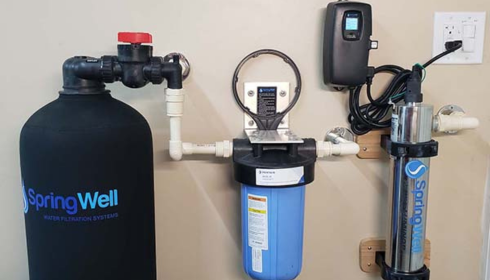Clean Water Matters: Tackling PFAS Contamination in Texas Homes
August 26, 2025

There are few things more comforting than filling up a glass of water straight from the tap and knowing it’s safe. But in Texas, that peace of mind has been shaken for many families as more stories about PFAS contamination make their way into local conversations. PFAS, often called “forever chemicals,” have a way of hanging around—lingering in the water, sneaking into our bodies, and sticking in the back of our minds whenever we take a sip. It’s unsettling, but it’s also fueling a much-needed conversation about how we clean up our water and protect our health.
You don’t need to be a chemist to understand the worry. PFAS are synthetic chemicals used in everything from nonstick cookware to firefighting foam. The problem is they don’t just vanish when they’ve served their purpose. Instead, they persist in soil, rivers, and even the groundwater we rely on. For Texans who pride themselves on independence and resilience, this has become another challenge to face head-on—like a tough summer drought or a stubborn patch of hard water.
Why People Are Paying More Attention Now
The truth is, PFAS contamination isn’t brand-new. Researchers and environmental groups have been talking about it for decades. But only recently has the issue hit close to home for a lot of people in Texas. Reports of elevated levels in certain communities—sometimes near military bases or industrial sites—have left families wondering: what’s really in the water we’re drinking every day?
That’s where solutions like a PFAS water filter Texas homeowners can rely on come into play. Filters designed to trap and reduce PFAS compounds offer a layer of security, something tangible you can install in your home while waiting for larger-scale infrastructure improvements to catch up. It’s not about fear—it’s about being proactive and practical when it comes to something as essential as water.
A Growing Industry of Clean Water Services
With demand rising, you’re starting to see more local companies step in with specialized filtration and treatment options. It’s no longer a niche concern. When parents hear that PFAS exposure may be linked to health issues ranging from thyroid disruption to certain cancers, they don’t want to gamble. They want an answer today, not a vague promise of future improvements.
That’s why many Texans are turning to a TX PFAS removal service, where experts can evaluate water quality and install systems tailored to a home’s unique needs. Some households might only need a point-of-use filter under the kitchen sink, while others benefit from a whole-home solution. It depends on the water source, the levels of contamination, and of course, the family’s comfort level. The key is choice—having the ability to take control instead of just hoping municipal upgrades arrive in time.
The Human Side of Water Treatment
What stands out most in these conversations isn’t the technical jargon or even the alarming headlines. It’s the personal stories. A mom in San Antonio who noticed her kids asking if the water was safe to drink. A retiree outside Dallas who decided to invest in filtration after hearing about contamination in nearby towns. These are the voices that keep the PFAS discussion grounded in reality. It’s not just a science problem or a policy debate. It’s about families, health, and everyday routines—like making coffee in the morning or filling a water bottle before a jog.
When you search for PFAS water treatment near me, what you’re really asking is: who can I trust to help me take care of something this important? That’s where local service providers make such a difference. They’re not just installing equipment; they’re walking people through the process, answering late-night questions, and offering reassurance when uncertainty feels overwhelming.
What the Future Might Look Like
There’s no single fix that will wipe PFAS away overnight. Federal and state agencies are working on stricter guidelines, and there’s more investment flowing into municipal treatment plants. But for now, the responsibility often falls on individual households to bridge the gap. That’s not necessarily a bad thing—it’s empowering to know you can take immediate steps—but it does highlight the uneven access to clean water across different regions.
Some experts predict that PFAS filtration will soon be as common in Texas homes as water softeners are today. It’s not hard to imagine. Just like families once decided they didn’t want to put up with limescale buildup and mineral-heavy water, more are deciding they don’t want invisible contaminants in their glass. Change, after all, usually starts at the kitchen table.
A Closing Thought
At the end of the day, water is personal. It’s what we cook with, what we bathe in, what keeps us alive on the hottest Texas afternoons. That’s why the PFAS issue resonates so strongly—it’s not some faraway environmental debate. It’s happening in our homes, affecting our families. The good news is we’re not powerless. Whether it’s installing filters, working with local experts, or simply spreading awareness, every step counts toward cleaner, safer water.
Texans have always been known for rolling up their sleeves and solving problems. PFAS may be a stubborn one, but with the right tools and a bit of determination, it’s a challenge we can meet. And maybe one day soon, when we fill that glass from the tap, we’ll feel that easy peace of mind again—knowing the water’s as pure as it ought to be.
